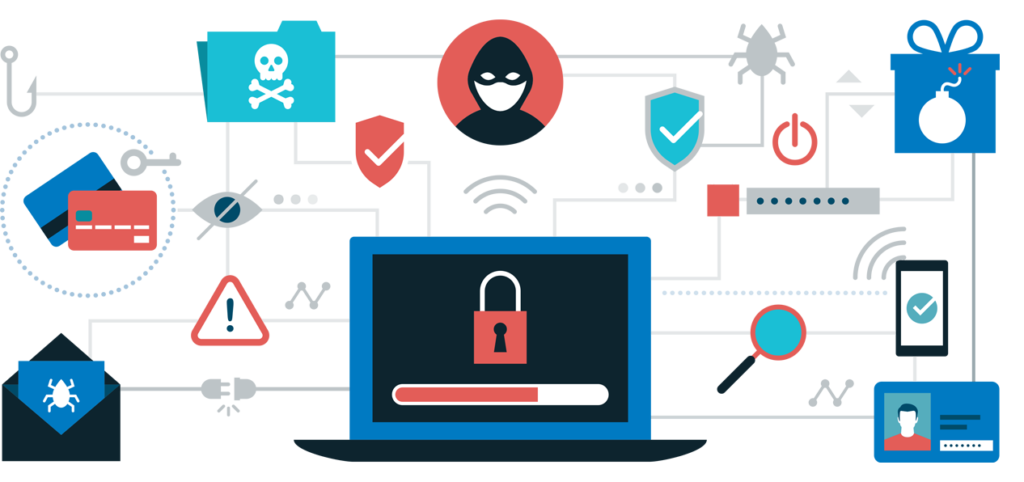What is Endpoint Security? A Complete Guide

What is Endpoint Security?
Endpoint security involves protecting the various devices people connect to networks, such as desktops, laptops, mobile devices, and a wide assortment of internet of Things (IoT) devices from cyberattacks.
In some ways, endpoint security is different from older, traditional models that focus on setting up a security perimeter around an organization’s network. While this can sometimes be effective, it doesn’t protect every way a cybercriminal can enter an organization’s infrastructure. Endpoint security provides an additional layer of protection than just using a firewall alone and devotes attention to the activity of individual endpoints, including how, when, and where they connect, who’s using them, and the types of data entering each device.
More Than Perimeter Protection
With endpoint security, you not only get some perimeter protection, but you can also monitor the behavior and transmissions of individual computers, mobile, and IoT devices. In this way, you can even prevent threats at the device level before they ever enter your network security perimeter.
While the IT department has set up a firewall, many threats can bypass firewall protection alone. If a zero-day attack occurs without an endpoint security solution in place, the firewall would be the only protection the fulfillment company has. Fortunately, Your Goods, Inc. has an endpoint security system. It detects abnormal activity on the user’s scanner, throws the malware into a sandbox, and triggers an alert, which enables the threat response team to take action to safeguard the rest of the network.
Without endpoint security measures in place, the threat may have been able to spread, but because each IoT device was being monitored, it was contained, and downtime was either eliminated or minimized.
How Endpoint Security Works
An endpoint security solution works by protecting the workflows and data of individual devices that connect to your network. This is done by examining the data that comes into your network and then comparing it against a database of information about different threats.
Learn More
Click here to learn more on how endpoint security works.
Why Endpoint Protection is Important
Endpoint protection is important because it gives you more precise control over your digital environment. When compared to an endpoint security solution, a perimeter security system is like a party with one bouncer at the door versus one where everyone has their own bodyguard. Even if a threat were to sneak in, it would also have to bypass each individual endpoint’s security.
Learn More
Click here for more on why endpoint protection is important.
What an Endpoint Management Solution Does
An endpoint management solution empowers you to track device activity and manage device software, and monitor and report what each device does. You can also use it to remotely control devices, whether for troubleshooting or operational purposes.
Learn More
Check out our in-depth article on what an endpoint management solution does.
Types of Endpoint Security
While there are many types of endpoint security, here are some of the most common:
- Network Access Control (NAC). NAC involves the management of users and devices for the purpose of controlling which networks or network segments they’re able to interact with.
- Internet-of-Things (IoT) Security. IoT endpoint security protects IoT devices, which depend on an internet connection that hackers sometimes seek to exploit.
- Insider threat protection. Insider threat protection involves keeping unauthorized users from accessing certain areas of your network. It also incorporates technology that tracks user activity as they use endpoints connected to your network.
Learn More
Check out the full detailed list of types of endpoint security.
The Difference Between Endpoint Security Software vs. Antivirus Software
Endpoint security software can consist of a range of protective tools, while antivirus software only finds and eliminates viruses and other kinds of malware. Antivirus software can be a component of an endpoint security system, but if it comprised the entire solution, you would need additional measures to keep your network secure.
For example, with endpoint security software, you can prevent a device from accessing a malicious website that downloads malware on the devices of users that visit it. Antivirus software can identify a virus once it’s been downloaded, but it can’t always prevent it from being downloaded in the first place.
If all an endpoint had was antivirus software, a user could download a virus, then connect to another network and infect computers on that network with the virus. If their antivirus software ran after they had connected to the other network, it would be too late; the damage would have already been done. But endpoint security could have prevented the attack in the first place.
Core Functionality of an Endpoint Security Solution
An endpoint security solution performs several core functions that, when combined, keep your endpoints and the networks they connect to safer. These include:
- Malware prevention using next-generation antivirus technology
- Threat detection via an endpoint detection and response (EDR) system
- Threat hunting
- Threat intelligence integration
Learn More
Learn more about the core functionality of an endpoint security solution.
Need to strengthen your endpoint security?
We can help! Get in touch with us below to speak to one of our experts.
"*" indicates required fields
